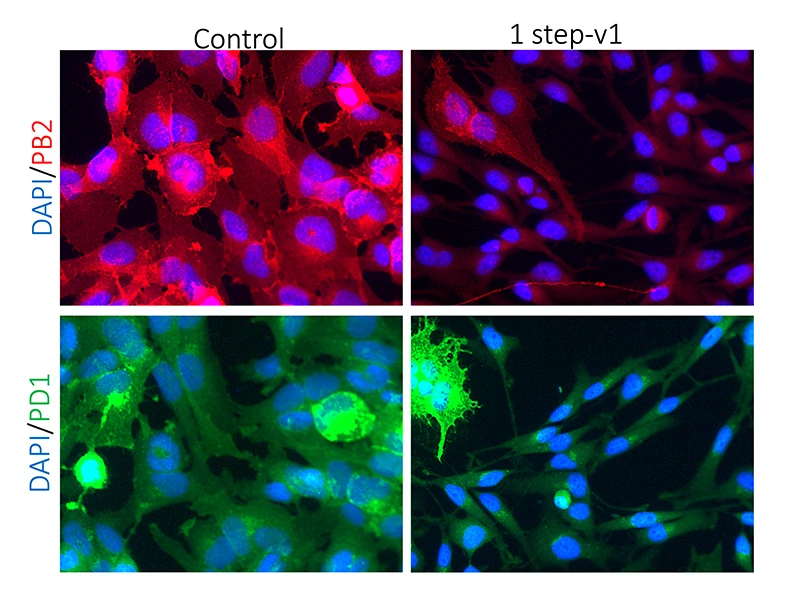There are nine different types of plexins, and they are involved in many processes (for example, neurodevelopment, bone homeostasis, wound healing). In the Hongyan (Jenny) Zou, MD, PhD, and Roland Friedel, PhD, labs, investigators are focused on Plexin B2 and Plexin D1 (PB2/D1), which were found to be upregulated in GBM and are associated with low survival rates. They are working to understand what happens to the cell morphology, nuclear size, and states of differentiation in the PB2/D1 double knockout. They are also working on migration studies to understand how glioma stem cells (GSCs) respond to being challenged and if they can squeeze through tight spaces.

In a patient-derived glioma stem cell line (SD3 GSCs), knocking out PB2/D1 (plexin receptors that are upregulated in glioblastoma) greatly reduced its expression. However, a heterogenous and mosaic population is observed where some cells resist the change.
This work was submitted by Jose Santiago, a rising senior at the Manhattan Center for Science and Mathematics, who was participating in the Lloyd Sherman Scholars Program, a research preparation program that offers classroom and laboratory training for high school-aged boys belonging to groups that are underrepresented in medicine. The program is one of several administered through the Center for Excellence in Youth Education, a unit of Mount Sinai’s Office for Diversity and Inclusion.
Dr. Zou is Professor of Neuroscience, and Neurosurgery, and Dr. Friedel is Associate Professor of Neuroscience, and Neurosurgery, at the Icahn School of Medicine at Mount Sinai. Mr. Santiago was mentored in the Zou Lab by Sita Sadia, a student at Mount Sinai’s Graduate School of Biomedical Sciences enrolled in the Master of Science in Biomedical Science program. He was mentored in the Friedel Lab by Chrystian Junqueira Alves, PhD, Assistant Professor of Neuroscience.